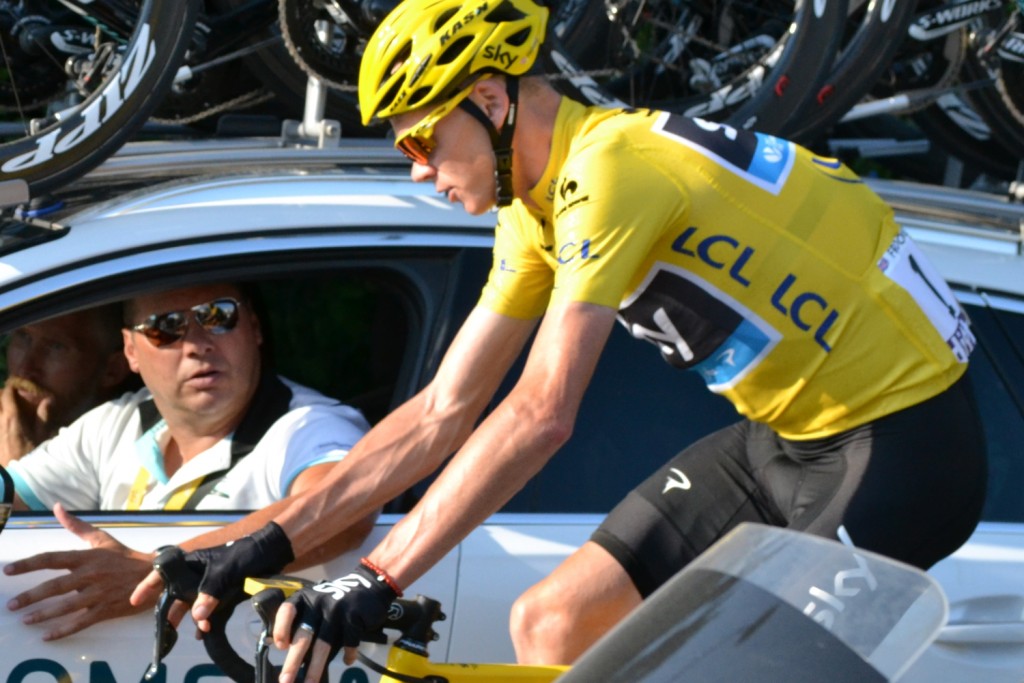
As Chris Froome celebrates his third Tour de France victory, research shows that such athletes have superior ability to resist mental fatigue.
Professor Samuele Marcora, Director of Research in Kent’s School of Sport and Exercise Sciences, co-authored a report in the journal Plos One entitled Superior Inhibitory Control and Resistance to Mental Fatigue in Professional Road Cyclists.
For the study, Professor Marcora and Australian colleagues compared the performance of 11 professional cyclists and nine recreational cyclists in various tests. As expected, the professional cyclists outperformed the recreational cyclists in a simulated time trial in the laboratory. The new finding was that while the recreational cyclists slowed down after performing a computerised cognitive task to induce mental fatigue, the professional cyclists’ time trial performance was not affected.
In addition, the professional cyclists performed better than the recreational cyclists in the computerised cognitive task which measure ’inhibitory control‘ or willpower. This is not surprising as the ability to suffer is a major factor in the sport of cycling .
Professor Marcora, says that the two effects go hand in hand, because becoming resistant to mental fatigue should bolster willpower during the latter stages of a competition such as the Tour de France.
Although largely hereditary, he speculates that superior willpower and resistance to mental fatigue may be trained through hard physical training and the demanding lifestyle of elite endurance athletes. Professor Marcora is also developing, in collaboration with the Ministry of Defence, a new training method (Brain Endurance Training) to boost resistance to mental fatigue and endurance performance even further.





